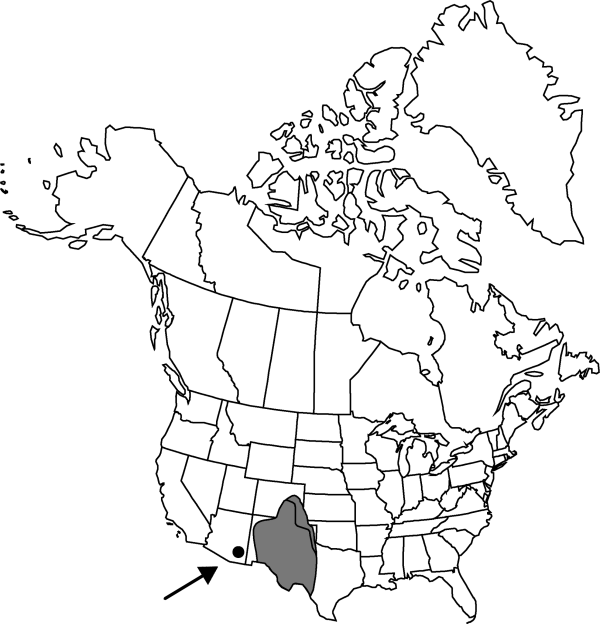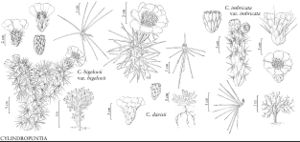Difference between revisions of "Cylindropuntia imbricata var. imbricata"
FNA>Volume Importer |
imported>Volume Importer |
||
| (7 intermediate revisions by 2 users not shown) | |||
| Line 1: | Line 1: | ||
{{Treatment/ID | {{Treatment/ID | ||
|accepted_name=Cylindropuntia imbricata var. imbricata | |accepted_name=Cylindropuntia imbricata var. imbricata | ||
| − | |accepted_authority= | + | |accepted_authority= |
|publications= | |publications= | ||
| + | |special_status={{Treatment/ID/Special_status | ||
| + | |code=F | ||
| + | |label=Illustrated | ||
| + | }} | ||
|basionyms= | |basionyms= | ||
|synonyms={{Treatment/ID/Synonym | |synonyms={{Treatment/ID/Synonym | ||
|name=Cactus cylindricus | |name=Cactus cylindricus | ||
|authority=James | |authority=James | ||
| − | }}{{Treatment/ID/Synonym | + | |rank=species |
| + | }} {{Treatment/ID/Synonym | ||
|name=Opuntia arborescens | |name=Opuntia arborescens | ||
|authority=Engelmann | |authority=Engelmann | ||
| − | }}{{Treatment/ID/Synonym | + | |rank=species |
| + | }} {{Treatment/ID/Synonym | ||
|name=Opuntia vexans | |name=Opuntia vexans | ||
|authority=Griffiths | |authority=Griffiths | ||
| + | |rank=species | ||
}} | }} | ||
|hierarchy=Cactaceae;Cactaceae subfam. Opuntioideae;Cylindropuntia;Cylindropuntia imbricata;Cylindropuntia imbricata var. imbricata | |hierarchy=Cactaceae;Cactaceae subfam. Opuntioideae;Cylindropuntia;Cylindropuntia imbricata;Cylindropuntia imbricata var. imbricata | ||
| Line 21: | Line 28: | ||
}}<!-- | }}<!-- | ||
| − | --><span class="statement" id="st- | + | --><span class="statement" id="st-undefined" data-properties=""><b>Trees,</b> with short trunks, openly branched, 3(–5) m. <b>Stem</b> segments 12–40 cm; tubercles widely spaced. <b>Spines</b> and sheaths usually tan to dirty white or ± yello, sometimes absent. <b>2n</b> = 22.</span><!-- |
-->{{Treatment/Body | -->{{Treatment/Body | ||
| + | |phenology=Flowering spring–summer (May–Aug). | ||
|habitat=Deserts, grasslands, pinyon-juniper woodlands, hills, plains | |habitat=Deserts, grasslands, pinyon-juniper woodlands, hills, plains | ||
|elevation=(800-)1100-1800(-2200) m | |elevation=(800-)1100-1800(-2200) m | ||
|distribution=Ariz.;Colo.;Kans.;N.Mex.;Okla.;Tex.;Mexico (Chihuahua;Coahuila;Durango;Nuevo León;San Luis Potosí;Tamaulipas;Zacatecas). | |distribution=Ariz.;Colo.;Kans.;N.Mex.;Okla.;Tex.;Mexico (Chihuahua;Coahuila;Durango;Nuevo León;San Luis Potosí;Tamaulipas;Zacatecas). | ||
| − | |discussion=<p>A dominant cholla of the Chihuahuan Desert, Cylindropuntia imbricata var. imbricata is wide- ranging and variable in several characters; it is generally shorter and more spiny northward (there often referred to as Opuntia arborescens). The species appears to be spreading northeastward in Oklahoma and Kansas as a result of cattle ranching activities. In Arizona, New Mexico, and Mexico, var. imbricata intergrades with C. spinosior. Northward, var. imbricata hybridizes with C. whipplei (= C. ×viridiflora).</p> | + | |discussion=<p>A dominant cholla of the Chihuahuan Desert, <i>Cylindropuntia imbricata </i>var.<i> imbricata</i> is wide- ranging and variable in several characters; it is generally shorter and more spiny northward (there often referred to as <i>Opuntia</i> arborescens). The species appears to be spreading northeastward in Oklahoma and Kansas as a result of cattle ranching activities. In Arizona, New Mexico, and Mexico, <i></i>var.<i> imbricata</i> intergrades with <i>C. spinosior</i>. Northward, <i></i>var.<i> imbricata</i> hybridizes with <i>C. whipplei</i> (= C. ×viridiflora).</p> |
|tables= | |tables= | ||
|references= | |references= | ||
| Line 36: | Line 44: | ||
-->{{#Taxon: | -->{{#Taxon: | ||
name=Cylindropuntia imbricata var. imbricata | name=Cylindropuntia imbricata var. imbricata | ||
| − | + | |authority= | |
| − | |authority= | ||
|rank=variety | |rank=variety | ||
|parent rank=species | |parent rank=species | ||
| Line 43: | Line 50: | ||
|basionyms= | |basionyms= | ||
|family=Cactaceae | |family=Cactaceae | ||
| + | |phenology=Flowering spring–summer (May–Aug). | ||
|habitat=Deserts, grasslands, pinyon-juniper woodlands, hills, plains | |habitat=Deserts, grasslands, pinyon-juniper woodlands, hills, plains | ||
|elevation=(800-)1100-1800(-2200) m | |elevation=(800-)1100-1800(-2200) m | ||
| Line 49: | Line 57: | ||
|publication title= | |publication title= | ||
|publication year= | |publication year= | ||
| − | |special status= | + | |special status=Illustrated |
| − | |source xml=https:// | + | |source xml=https://bitbucket.org/aafc-mbb/fna-data-curation/src/2e0870ddd59836b60bcf96646a41e87ea5a5943a/coarse_grained_fna_xml/V4/V4_213.xml |
|subfamily=Cactaceae subfam. Opuntioideae | |subfamily=Cactaceae subfam. Opuntioideae | ||
|genus=Cylindropuntia | |genus=Cylindropuntia | ||
|species=Cylindropuntia imbricata | |species=Cylindropuntia imbricata | ||
|variety=Cylindropuntia imbricata var. imbricata | |variety=Cylindropuntia imbricata var. imbricata | ||
| − | |||
| − | |||
| − | |||
| − | |||
| − | |||
| − | |||
| − | |||
| − | |||
| − | |||
| − | |||
| − | |||
}}<!-- | }}<!-- | ||
-->[[Category:Treatment]][[Category:Cylindropuntia imbricata]] | -->[[Category:Treatment]][[Category:Cylindropuntia imbricata]] | ||
Latest revision as of 21:57, 5 November 2020
Trees, with short trunks, openly branched, 3(–5) m. Stem segments 12–40 cm; tubercles widely spaced. Spines and sheaths usually tan to dirty white or ± yello, sometimes absent. 2n = 22.
Phenology: Flowering spring–summer (May–Aug).
Habitat: Deserts, grasslands, pinyon-juniper woodlands, hills, plains
Elevation: (800-)1100-1800(-2200) m
Distribution

Ariz., Colo., Kans., N.Mex., Okla., Tex., Mexico (Chihuahua, Coahuila, Durango, Nuevo León, San Luis Potosí, Tamaulipas, Zacatecas).
Discussion
A dominant cholla of the Chihuahuan Desert, Cylindropuntia imbricata var. imbricata is wide- ranging and variable in several characters; it is generally shorter and more spiny northward (there often referred to as Opuntia arborescens). The species appears to be spreading northeastward in Oklahoma and Kansas as a result of cattle ranching activities. In Arizona, New Mexico, and Mexico, var. imbricata intergrades with C. spinosior. Northward, var. imbricata hybridizes with C. whipplei (= C. ×viridiflora).
Selected References
None.
